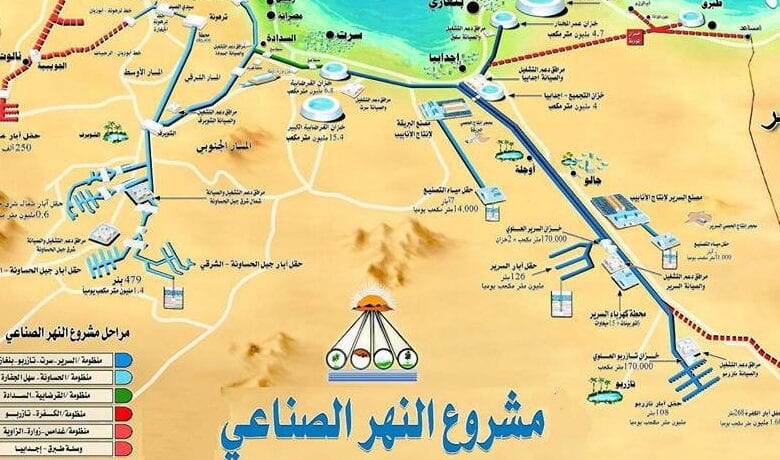
Statement on the Occasion of World Water Day
Photo is from Man Made River :https://gmra.ly/
“Access to safe water is a human right and – along with access to sanitation facilities – drives forward development.”, Message from Ms. Audrey Azoulay, Director-General of UNESCO[1].
The United Nations General Assembly adopted Resolution (47/193)[2], by which 22 March of each year was declared World Day for Water, to be observed starting in 1993. Later on, other celebrations and events were added. For instance, the “International Year of Cooperation in the Water Sphere”[3] 2013, and the current “International Decade for Action on Water for Sustainable Development[4]“, 2018-2028. These observances serve to reaffirm that water and sanitation measures are key to poverty reduction, economic growth, and environmental sustainability.
Improvements in water resources management and access to water supply and sanitation services are essential to addressing various social and economic inequities, such that ‘no one is left behind’ when it comes to enjoying the multiple benefits and opportunities that water provides[5].
Statistically, according to the United Nations World Water Development Report, water use has been increasing worldwide by about 1% per year since the 1980s, driven by a combination of population growth, socio-economic development and changing consumption patterns. Global water demand is expected to continue increasing at a similar rate until 2050, accounting for an increase of 20 to 30% above the current level of water use, mainly due to rising demand in the industrial and domestic sectors. Over 2 billion people live in countries experiencing high water stress, and about 4 billion people experience severe water scarcity during at least one month of the year. Stress levels will continue to increase as demand for water grows and the effects of climate change intensify.
Libya suffers from water scarcity, as 90% of its area is desert, and the drinking water network “the Great Man Made River” (GMMR) is considered the the main source of fresh water in addition to the groundwater wells, which together constitute 97% of the water sources for agricultural, industrial and domestic use. A number of water dams and a few seawater desalination plants cover the needs of areas which GMMR does not reach.
The GMMR network, the main source of drinking water in Libya, faces many challenges. Human Rights Solidarity (HRS), in a its recent report[6], documented 87 attacks and operational incidents, which affected the flow of drinking water, from May 2013 to December 2019. Majority of incidents fall under the category of unarmed attacks, which include sabotage attacks and attempts of making illegal tabs into the system. HRS observed increase in number of incidents in the past four years.
On World Water Day, Human Rights Solidarity calls on the relevant and responsible authorities of the Libyan state to:
- Review, update and develop strategies and plans for water resources management,
- Make more effort to raise the awareness of the people regarding the importance of preserving and conserving water resources,
- Strengthen the State’s control over its water resources and protect it from the attacks and sabotages, and
- Be more transparent in providing information related to water resources.
[1] UNESCO: “Message from Ms Audrey Azoulay, Director-General of UNESCO, on the occasion of World Water Day, 22 March 2019”, 22 March 2019.
[2] United Nations General Assembly: “Resolution Nr. 193/47”, 22 December 1992.
[3] United Nations: “United Nations International Year of Water Cooperation”.
[4] United Nations: “International Decade for Action on Water for Sustainable Development, 2018-2028”.
[5] UNESCO: “The United Nations world water development report 2019: Leaving no one behind”, executive summary.
[6] Human Rights Solidarity: “Report on the attacks on the fresh water network ‘Manmade River Project’ and the operational and technical challenges it faces, May 2013 – December 2019”, February 18, 2020.





